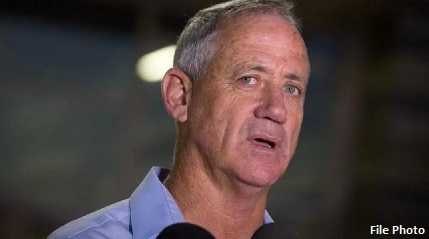
20 Dec 2022; MEMO: Israeli Defence Minister Benny Gantz called yesterday for taking advantage of the current unrest in Iran to put serious pressure on the government for a new and improved nuclear agreement, Maariv has reported. Gantz made his comment at the opening of the annual Jewish Media Summit organised by the Israeli Government Press Office attended by more than 100 Jewish journalists from all over the world.
"Iran is, first of all, a global and regional challenge, and only then a threat to Israel," said the former chief of staff. "Just as NATO acts in a coordinated manner when it comes to Ukraine, we must push our partners in the international community to deal with Iran in a coordinated manner before it brings itself to act with nuclear power."
Tel Aviv as well as regional and Western capitals, led by Washington, accuse Iran of seeking to produce nuclear weapons. Tehran insists that its nuclear programme is designed for civilian purposes, particularly electricity generation.
The minister warned against Iran crossing the point of no return on the nuclear level. "Time is of the essence and Iran is suffering from internal problems, economic difficulties and a severe backlash for its military support for Russia during the crisis in Ukraine. Putting pressure on Iran now of all times to join a better nuclear agreement would stop its nuclear progress, but if efforts fail, this is the time to show and exercise force." He added ominously, "We must focus on prevention now before it is too late."
Israel has a nuclear arsenal that is not subject to international monitoring or control. Iran and Israel both regard one another as enemy number one.
Tehran announced on 5 December that it would not accept the resumption of negotiations to revive the 2015 Joint Comprehensive Plan of Action nuclear deal under pressure and threats, and would not make concessions. Foreign Ministry spokesman Nasser Kanaani said at the time that the negotiations had their own logic, and Iran adhered to the 2015 agreement from which the US withdrew unilaterally in 2018, when Donald Trump was president.
"Iran is still committed to the negotiation process and seeks to resolve it, but it will not negotiate on the basis of the need for negotiations. The West's need for negotiation is no less than our country's need. A deal is available and the parties concerned can reach it in the shortest possible time," added Kanaani.
Indirect talks have been taking place since April 2021 between Tehran and Washington in the Austrian capital Vienna to revive the nuclear deal.




